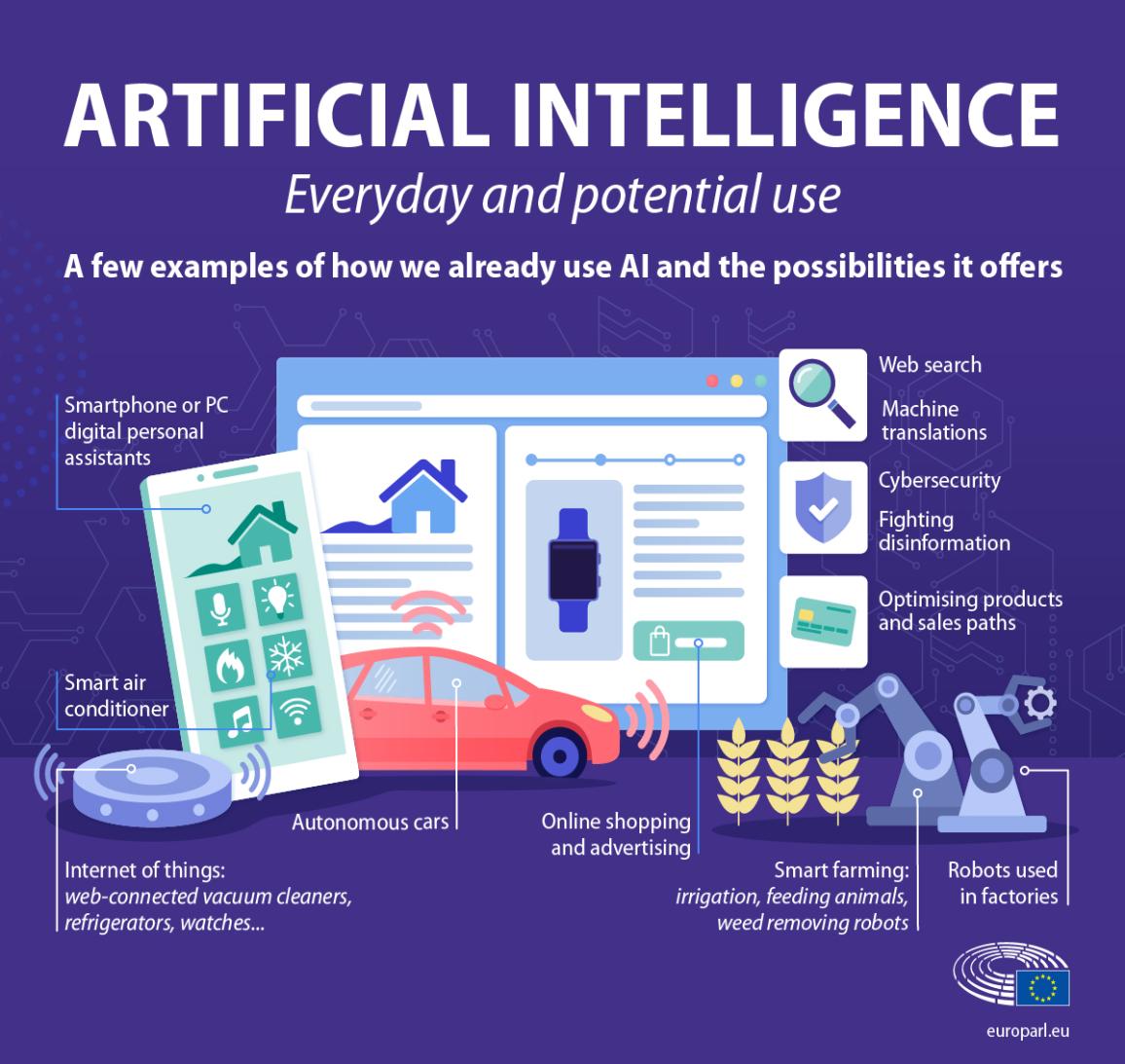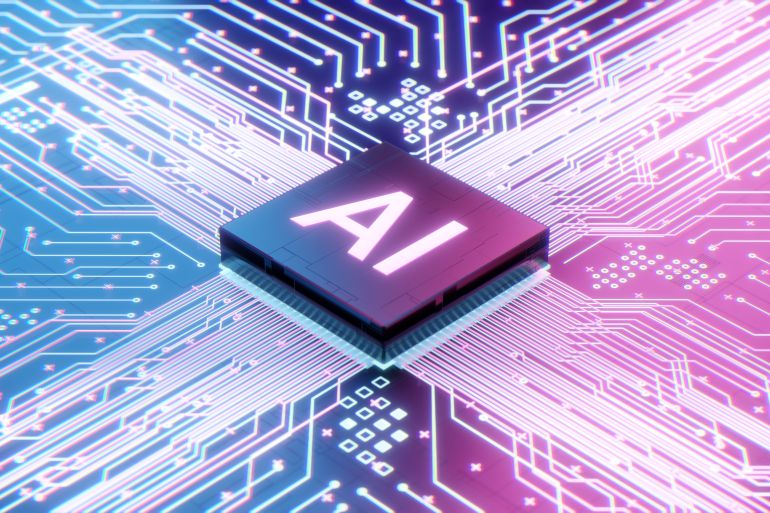From Data to Creativity: Checking Out the Influence of Generative AI in the Area of Expert System
Expert system (AI) has revolutionized many sectors, from medical care to finance, by leveraging data-driven formulas to discover valuable insights. Nonetheless, the capacity of AI goes far beyond mere data evaluation. With the advent of generative AI, a brand-new era is emerging, one that discovers the intersection of data and creative thinking. This exciting development holds extensive effects for the field of man-made knowledge, as it assures to transform not just just how we recognize and utilize data, yet likewise just how we approach the creative process. By harnessing the power of generative AI, we can open the capacity for makers to produce original and creative content. In this discussion, we will certainly delve right into the effect of generative AI in the realm of expert system, analyzing its prospective to reinvent imaginative sectors, assist in human-computer partnership, and increase crucial honest considerations. Join us as we explore the fascinating journey from data to creative thinking, and uncover the extensive influence generative AI might have on the future of expert system.
The Rise of Generative AI
Generative AI has actually arised as a groundbreaking area in expert system, transforming the means makers create new material and engage with the globe. Recently, there has actually been a substantial surge in the appeal and application of generative AI methods. These techniques enable devices to autonomously create new and distinct web content, such as images, music, and text, without specific human input.
Among the crucial elements contributing to the increase of generative AI is the availability of big and varied datasets. With the arrival of the internet and the proliferation of digital web content, vast quantities of information are now obtainable to AI systems. This abundance of data provides the needed basic material for training generative AI models, permitting them to discover and simulate human creative thinking.

Moreover, the raised computational power and the availability of specialized hardware, such as graphical handling systems (GPUs), have actually played a critical duty in the rise of generative AI. These developments have equipped AI systems to process and examine huge quantities of data, enabling them to create material rapidly and successfully.
Changing Creative Industries
The growing capabilities of generative AI, fueled by advancements in deep understanding algorithms and computational power, have resulted in a transformative effect on innovative sectors. This modern technology has actually transformed the way imaginative experts work, opening new opportunities and pressing the boundaries of human creativity.
Generative AI has actually enabled musicians to discover new realms of imagination by supplying them devices that can create distinct and unique web content. In the area of visual arts, generative AI algorithms can analyze existing artwork and create brand-new items based on the design and attributes of the input. This not only conserves time however additionally broadens the creative opportunities, enabling musicians to explore different styles and strategies.
In the songs sector, generative AI has additionally had a considerable influence. It can make up brand-new melodies and consistencies, developing music that was previously unthinkable. This technology can even mimic the design of renowned musicians, making it possible for the development of new tracks that seem like they were made up by musicians that have long died.
Moreover, generative AI has discovered applications in various other creative areas, such as fashion and style. It can generate brand-new clothes layouts, interior formats, and architectural concepts, supplying designers with a wide range of motivation and increasing the innovative process.
Nonetheless, while generative AI supplies interesting possibilities, it likewise elevates moral inquiries and obstacles traditional ideas of authorship and creativity. As this technology proceeds to create, it is crucial to strike a balance between human creative thinking and the abilities of AI, ensuring that the final result shows the purposes and creative vision of the human designer.
Enhancing Human-Computer Partnership
Collaboration in between computers and humans is being enhanced via the integration of generative AI, resulting in a new era of creative possibilities. With the improvements in man-made knowledge, human beings are now able to work carefully with computer system systems to achieve end results that were previously unbelievable. Generative AI, a part of AI that focuses on creating new material, has actually revolutionized the way humans and computers work together.
Generative AI makes it possible for computer systems to create material, such as photos, songs, and text, based upon instances and patterns offered by people. This partnership permits human beings to leverage the computational power of AI systems to improve their innovative processes. Artists can make use of generative AI to create brand-new visual concepts or check out different styles, while musicians can produce unique make-ups by teaming up with AI-generated tunes.
Additionally, generative AI can help in tasks that need big quantities of data processing, such as data analysis and pattern acknowledgment - generative ai company. By integrating AI systems into the partnership procedure, humans can take advantage of the computational abilities of AI to examine complex datasets and extract meaningful understandings
However, to make sure successful collaboration between human beings and computers, it is essential to establish a clear why not find out more understanding of the duties and responsibilities of each event. People should supply the required advice and knowledge, while AI systems can aid in the innovative process by producing options and possibilities. This collaboration between computer systems and humans opens up new opportunities for technology and creativity, pushing the limits of what is feasible in various fields.
Ethical Implications of Generative AI
As we dive into the ethical implications of generative AI, it becomes noticeable that this cutting-edge technology raises significant worries and factors to consider. Generative AI systems have the capability to create, produce, and imitate human-like material, such as images, videos, and message. While this has opened brand-new opportunities and chances in various fields, it has actually also triggered conversations regarding the prospective misuse and moral dilemmas connected with such modern technology.
One of the key issues is the possibility for deepfakes, which are adjusted or fabricated media that can deceive and mislead individuals. With generative AI, it comes to be much easier for destructive stars to produce persuading deepfakes, resulting in false information, reputational damage, and also political adjustment. This positions a risk to the count on we place in digital media and can have significant consequences for cultures and individuals.
Another honest consideration focuses on the concern of intellectual property. Generative AI systems can develop initial content that might infringe upon copyright laws or question concerning possession and acknowledgment. Establishing the rights and obligations in such scenarios becomes a complicated job, specifically when AI-generated content is tantamount from human-created web content.
Moreover, generative AI has the possible to bolster and magnify existing prejudices and discrimination existing in the training data. If the data used to train these systems has prejudiced details, the created material might important site mirror and bolster those prejudices, causing unfair or prejudiced results.
Along with these problems, there is also a demand to take into consideration the influence of generative AI on safety and security, permission, and personal privacy. AI systems can accumulate, examine, and utilize substantial amounts of individual data, bring about potential breaches of privacy and problems about data security. The approval of individuals whose data is used to train and improve these systems need to be thoroughly addressed to ensure honest methods.

Future Leads and Challenges
With developments in generative AI technology, the future holds both promising potential customers and countless challenges to conquer. The possible applications of generative AI are huge and differed. Among one of the most exciting leads is the capability to create sensible and personalized web content across various domain names, such as music, art, and literature. This might transform imaginative industries by making it possible for AI systems to produce cutting-edge and unique jobs. Furthermore, generative AI has the possible to improve human-computer communication by developing much more receptive and intelligent virtual aides and chatbots.

An additional challenge is the requirement for advanced formulas view website and computational power to improve the top quality and performance of generative AI systems. The existing restrictions in training time and computational resources impede the widespread adoption of generative AI in real-world applications.
Conclusion
Ethical implications surrounding generative AI has to be carefully considered and attended to. Looking ahead, future leads and difficulties exist in more discovering the capacity of generative AI and discovering an equilibrium in between creativity and ethical factors to consider.
Generative AI has actually arised as a revolutionary area in fabricated intelligence, reinventing the way makers produce brand-new content and connect with the globe. generative ai company.Generative AI has actually enabled musicians to discover new worlds of creativity by offering them tools that can create distinct and unique content. Generative AI, a part of AI that concentrates on producing new material, has actually changed the way humans and computer systems team up
Generative AI systems have the ability to create, create, and mimic human-like material, such as images, video clips, and message. Generative AI systems can develop original material that may infringe upon copyright laws or raise inquiries concerning possession and attribution.